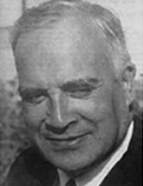

He also wrote the abridged edition of some of Fernão Lopes' chronicles (Crónica de D. Pedro [Chronicle of King Pedro], 1943; Crónica de D. Fernando [Chronicle of King Fernando] , 1945) with 'pedagogical intent', 'for the young people' of the schools, he highlighted, as he put it, chapters of varied subject matter with an emphasis on balance: hunting scenes alongside military episodes, administrative measures, 'and above all, the events in which the national conscience is affirmed.' On Crónica dos feitos notáveis que se passaram na conquista da Guiné por mandado do Infante D. Henrique [Chronicle of the remarkable deeds that took place in the conquest of Guinea by order of Prince Henry the Navigator] by Gomes Eanes de Zurara, he made a long critical study with annotations (1981).
He worked hard for a decade on the second edition of the work by H. da Gama Barros, História da Administração Pública em Portugal nos séculos XII a XV [History of Public Administration in Portugal from the 12th to the 15th centuries] he expanded it from 4 to 11 volumes, with a long general introduction of 63 pages and many erudite notes, essentially of an economic and social nature [Livraria Sá da Costa, 1945-1954]. His plan also included a volume of reference notes, in the end, it didn't come to fruition.
As early as 1924, Fidelino de Figueiredo, praising Gama Barros' work, labelled the 'serious gap [in the first edition] the lack of analytical indexes that would facilitate consultation of its rich content' (História da Literatura Realista [History of Realist Literature], 1924, p. 286). For his part, Orlando Ribeiro [1987] observed that this [TSS's] was a "new, fresh, careful and annotated edition", but complained that it "lacks the indispensable analytical index — a shortcoming all the more deplorable given that the first edition is very brief" (p. 90, no. 10). With regard to some aspects of the notes added, the geographer is blunter. Thus, when referring to TSS's position on the 'depopulation', he points out weaknesses in the argument: 'In this erudite plea, the Portuguese historian confronts more authorities than facts — and of those, he considers one indisputable: Sánchez Albornoz!’ (p. 95, n. 13). TSS didn't just update a previous edition or edit manuscripts that its author hadn't been able to complete, but took on the task of organising new volumes with the large quantity of 'proofs' and notes scattered in bundles of entries that he had left in a 'perfectly ordered' archive. In his introduction, TSS, while outlining the biography, he was able to critically assess the methodology employed by the author, "who lacks historical training but has a legal background — a bias that is reflected in the disproportionate structure of the work, which aims to reveal the history of institutions." On the other hand, he emphasises that the penchant for meticulous analysis of this indefatigable reader of texts "makes synthesis impossible, without which there is truly no history" (Gama Barros, oc., 1945, p. XL). But TSS protests that this work "is more Gama Barros's than ours" and concludes that it is a work of exceptional merit that, from now on, scholars will not be able to ignore if they want to "seriously approach the life of our medieval society".
This work is financed by national funds through FCT - Foundation for Science and Technology, I.P, in the scope of the projects UIDB/04311/2020 and UIDP/04311/2020.
